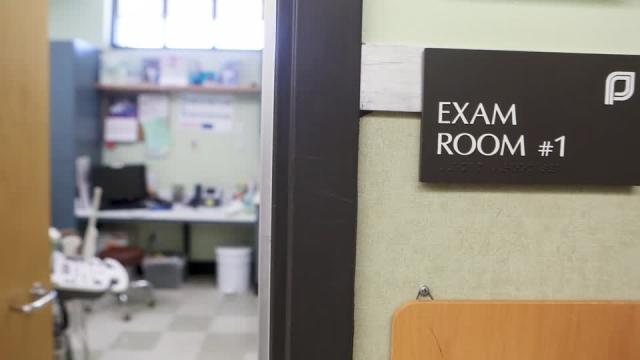


Tue, May 31, 2022
By Andrew Cawthorne
(Reuters) - When a desperate and bleeding 17-year-old girl walked into his rural health centre, Kenyan medic Ismail Mohammed Salim thought he was doing the right thing by helping her conclude an unwanted and dangerous pregnancy.
Days later, both were in jail.
"I gave an evacuation service to save a patient's life as the government trained me to do. Then I'm prosecuted," said Salim, who was accused of performing an illegal abortion and detained in Kilifi town, where he had to sleep 20-to-a-cell.
"I was in despair."
After a week in custody and a two-year legal process, the clinical officer and girl were vindicated in March by the High Court, which reaffirmed Kenya's constitutional provision for abortion services in emergency or life-threatening situations.
Such cases have given cheer in recent years to abortion rights activists around Africa, where cultural and religious traditions clash with the reality of widespread underage and unwanted pregnancies, sometimes by rape or incest.
Now, however, those activists are looking nervously to the United States, where a leaked Supreme Court ruling would, if confirmed, overturn the landmark Roe v Wade decision that legalized abortion there.
"It is a major threat to abortion rights globally," said Evelyne Opondo, senior regional director for Africa of the Center for Reproductive Rights, covering Kenya, Uganda, Malawi, Nigeria, Tanzania, Rwanda and Zambia.

"A lot of us have looked up to the U.S. for a lot of things really, and perhaps believed too much in their system."
U.S. President Joe Biden eliminated his predecessor Donald Trump's so-called "global gag" rule banning funds for aid groups that discuss abortion, and has promised counter-measures should the U.S. Supreme Court confirm the draft ruling reported by news outlet Politico.
Experts say an overturning of Roe v Wade would have an inevitable major knock-on effect in Africa, emboldening anti-abortionists and boosting their funding, much of which comes from American pockets.
According to the World Health Organization (WHO), there are around 73 million abortions globally per year, 45% in unsafe conditions. Poor nations bear the brunt, with 220 women dying for every 100,000 unsafe abortions.
In Africa, 75% of terminations are unsafe, the WHO says. They occur in homes or backstreet clinics, sometimes by inserting knitting needles or bicycle spokes, or drinking bleach.
'WORSE THAN DOGS'
Around the world's poorest continent, a strong anti-abortion lobby has helped stall some liberalising reproduction bills, including in the East African bloc's parliament.
Those campaigners say it is a practice akin to murder being imposed on Africa by Westerners when attention would be better spent on basics such as schools and clean water.
Kathy Kageni-Oganga, a pastor at Kenya's Sozo Church of God, said she was praying that Roe v Wade is overturned but would still be surprised if it happened.
"It would be such a miracle," she said.
Most U.S. experts believe that the U.S. court, with a 6-3 conservative majority including three justices appointed by Trump, will act to end or cut back abortion rights.
"They kill these babies worse than dogs. Nobody has the right to decide who lives and who dies, only God," added Kageni-Oganga. "Abortion is actually very foreign and it's actually taboo. But people in Africa have been made to believe that it's posh, it's cool."
The former human resources director, who made headlines in 2019 when anti-abortion billboards she had placed in the Kenyan capital were ordered to be taken down, said self-control was the answer to unwanted pregnancies. "People are behaving as though you'd be cooking in the kitchen and you suddenly find yourself pregnant," she said.
Her church had cared for 20 teenagers with crisis pregnancies in recent years, all of whom kept their babies despite being offered adoption, Kageni-Oganga added.
Given such religious precepts, social stigma and a mishmash of laws that in most African nations only allow abortions in extreme situations, backstreet operations remain rife.
Abortion rights campaigners fear that will worsen if Roe v Wade were struck down.
"My case was a very big win for me and for the whole medical fraternity and for the girls who need help," said Salim, the Kenyan medic. "If there is a setback in America, then it will be a very big negative for us."
(Reporting by Andrew Cawthorne; Editing by Katharine Houreld and Alex Richardson)
No comments:
Post a Comment